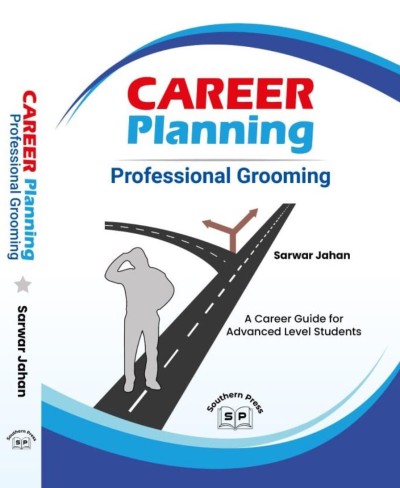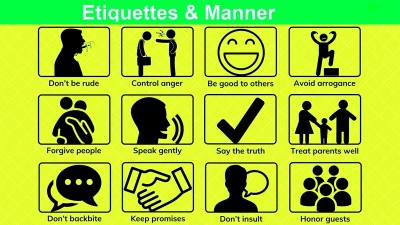Course description
When to start looking?
It is never too soon to start looking for possible employment. From the first year of your studies, it is advisable that you look at job adverts for junior positions, by looking at these adverts you can get a good idea of what companies are looking for, and prepare accordingly. You should look specifically at the types of skills and abilities they require, if for example, you identify that all graphic design positions require a good level of knowledge of software packages, in addition to taught classes spend time learning them yourself.
Where to start looking?
The following is a list of places that can start you on the path of getting a job.
· Careers Service
This should really be your first port of call, your careers adviser will be up to date with opportunities and information, and will be able to guide you through any questions or queries, you may have.
· Online
The Internet is a vast resource, and jobs are listed on various recruitment company websites. Many of these services require you to sign up and register with them, most are free. You often have to include your CV and other details so that jobs can be matched to you. Because of the limited nature of websites, you have to use keywords to describe what you are looking for, so investigation of the options before signing on is advisable otherwise you may not be found by possible companies.
· Speculative
You may approach companies on the off chance they have vacancies, ideally you will spend time researching the company, finding out as much as you can before applying, you may well find out through your research if they have any vacancies.
· Word of Mouth
In the creative industries, many jobs and people are found by word of mouth. By networking and joining relevant community sites you can often hear about jobs before they are officially advertised.
· Career Fairs
Every year there are careers fairs across the country, employers of all types have stands where you can go and learn more about their companies. Careers fairs solely for creative industries are not that common so it is worth investigating who will be exhibiting before attending.
Test Your Career Fitness before Job Search
Job Search Action Plan
Ø Once you have completed your self-assessment, explored different industries and fields, and narrowed your search to a few target industries and companies, you are ready to enter
Ø the final stage of the job search—identifying and applying for jobs. Below are some tips for how to go about finding a job opportunities. Three job search methods are described:
Ø Traditional, Using the Hidden Job Market, and Networking.
Self Assessment
Self-assessment is the process of gathering information about yourself in order to make an informed career decision, such as VIS (Values, Interests & Skills)
Values
Values are things that are motivating or important to you. These are qualities that keep you energized and excited about the work that you do. Check out this sample list of values: Which values suit you best?
Interests
Interests are activities that you like or enjoy. These are the activities that hold your attention in your academics, professional work or leisure.
Skills
Skills are activities that you can do well. They fall into two categories:
1) Knowledge-based skills are acquired through education, training and on-the-job experience,
2) Transferable skills are actions that can be carried out in different knowledge areas, e.g.,
Exploring Your Options: Knowing What’s Out There
1) Read about industries, organizations, occupations in: • Websites, • Newspapers and magazines
• Trade magazines and newsletters • Career books and career websites
2) Notice the jobs around you, especially those done by family, friends, acquaintances and others. Ask people
3) Talk to business/industry people:
• Talk with your advisor about opportunities for people with your academic training.
• Attend student association events sponsored by various departments.
• Take part in career fairs.
• Conduct informational interviews with people in occupations and organizations that interest you
Where can you learn about companies and organizations?
• Company websites
• Trade associations: print and web materials
• News articles about companies and executives: newspapers, journals (use online search engines)
• Talk to employees: network,
Websites
If you have access to a computer you can also look at websites of companies you would like to work for and click on their employment/careers/jobs section. Sometimes it can be hidden in other sections.
What you should know about a company:
• Annual growth for past five years
• Age and background of the top management
• Competition
• current financial condition
• Future outlook
• Geographical locations, corporate headquarters
• News about a company, any new developments
• Number of years in business, history of organization
• Organizational structure, climate
• Products and services, clientele
• Reputation
• Size of organization (comparison to other companies in the industry)
• Values, company culture
What To Look For JOB In A Career
· Major Career Field Target
· Preferred Type of Work
· Income Requirements
· Geographical Requirements
· Special Needs
· Industry Preferences
· Stress Level
· Level of Interaction With Other People
· Indoor Vs. Outdoor
· Amount of Independence
· Balance Between Creative and Conventional Tasks
· Type of People You Would Interact With
· Physical Requirements
· Local/National/International Organization
· Benefits And Perks
· Advancement Opportunities
· A Good Boss
· Training
· Industry Outlook
· The reputation of the Firm
Categories of Worker
Blue-collar : "Blue-collar worker" is a member of the working class, who performs manual labor and earns an hourly wage rather than an monthly salary..
White-collar: "White-collar worker" means a salaried professional, typically referring to general office workers and management.
Subcategories
· Pink-collar worker (1975) – Secretarial, administrative, or other clerical workers and nurses.
· Grey-collar (1981) – A skilled Technician, typically someone who is both white and blue-collar, i.e., Information Technology workers. They are principally white-collar but perform blue-collar tasks with some regularity.
· Gold-collar worker (1985) – Highly skilled professionals who may be in high demand, such as engineers, doctors and lawyers.
· Red-collar worker - A farmer who works under the sunlight. Government workers of all types. Derived from compensation received from red ink budget. Also in China refers to Communist Party officials in private companies.
Specialty classifications
These classifications may fall under more than one of the categories or subcategories above.
· Green-collar worker - a green-collar worker is someone who holds an environmentally friendly job; such as a position at a hydropower plant.
· Yellow Collar – People in the creative field—photographers, filmmakers, developers, etc. They may spend time doing both white and blue-collar tasks as well as tasks outside either category.
· Light Blue Collar – Temp workers, whether or not they're working a blue or white-collar task. Light Blue is a combination of white and blue.
· Orange Collar - Prison workers who wear orange jumpsuits.[3]
· Open Collar - Workers who work from home.
· Silk Collar - Westerners going to Asia for work and opportunities.
No Collar - A term coined by Survivor: Worlds Apart, a free spirit.
Where to start looking?
There are basically four main ways to start looking for work:
1. Advertised jobs
a. Job Searching Online: Job websites such as www.jobsinbd.com; www.prothom-alojobs.com; www.bdjobs.compare all useful tools for job seekers.
b. Newspaper advertisements: local newspapers will have listing jobs across all types of industries.
c. Shop Front Advertisements: You may be required to submit a CV and an interview will be scheduled for a later date. Alternatively, you might be invited to make inquiries within the store. If this is the case, always ask to speak to the manager and be prepared for an on-the-spot interview. Make sure you are well dressed and prepared with questions and answers in case an on-the-spot interview takes place.
2. Employment agencies
Employment agencies (also called Recruitment agencies) are paid by businesses to find the employees. Registration is required for most of the agencies. Some registration is free some charge by commission or a flat rate. Employment agencies can make the job hunts easier, they are usually used to find people who have worked before and have specific skills or qualifications. Therefore they often can have trouble finding you a job if you’ve never worked before.
3. Networking
Networking is the most effective method of finding a job. One of the best ways to find your first job is through a referral from people you know. Spread the word among your friends and family. Explain what type of work you’re looking for, that you’re available for interviews and when you could start. It’s amazing how many jobs are out there once people know that you’re looking! Networking involves talking to as many people as possible about your job search. It can be part of a traditional job search as well as searches using the hidden job market.
4. Looking yourself
Another great way to find a job is going to local businesses and asking them if they need anyone. Get together a resume and walk-in around shops. Some businesses may have their own application form which they will give to you to fill in and bring back. Or they may direct you to their website to complete the form online.
The best way to do this is to get self-preparation, think about what you will say, ensure you are well presented, and have a number of copies of your resume (with your contact details on it), and then try to hit as many places as you can in one go! There will be rejections, because obviously not all the businesses you approach will be looking for more staff at the exact time you walk in. Just remember it’s nothing personal, it’s not about you, but it’s about the needs of the business. Be prepared for a few “no’s” and don’t let it faze you. In the end, you only need one “yes”!
Common Job Search Mistakes
1. Relying on one strategy
2. Lack of focus/career objective
3. Failure to identify and use networking
4. Targeting only large employers
5. Failure to follow–up
6. Unprofessional materials/appearance
7. Impersonal approach
8. Underestimate time needed to search
Traditional Job Search
Ø You can apply for advertised job vacancies by checking out the web locations.
Ø Newspapers, journals, publications
Ø Company websites
Ø Internet job sites, bulletin boards—e.g.,
Ø Employment agencies
Many positions are never advertised, how can you find the “Hidden” Job Market
n You can make contact before an employer knows they need you
n Target and employer that interest you and identify someone who works for each, talk to him/her about the company, your interests, and jobs.
n Talk to people in your network—does anyone know anyone who works for the company?
n Most employers prefer informal and personal methods of identifying employees.
n Networking does not eliminate the need to use other job-search methods
n It will produce helpful referrals from approximately many of your contacts.
n This process can be somewhat time-consuming – and you still need to use more traditional methods
Evaluating an Unsuccessful Job Search
n Rejection is part of the normal job search process, but…
n If you’ve looked for 6 months without much success, may need to redirect or gain experience
– Build your experience and gain skills
– Take a temporary position or internship
– Volunteer work
Category Job Listing
Video
1. Job Search
2. For Job
3. Job Advice
4. Skills


















